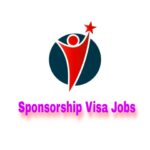visa sponsor jobs
Find Jobs in Canada for Foreigners with Visa Sponsorship
Job Description
Canada is open to international professionals through visa sponsorship jobs. This offers great chances for Americans and others. With over 800,000 job openings each year, there’s a wide range of opportunities in tech, healthcare, and construction.
Employers are looking for skilled workers. This makes it easier for foreigners to find jobs in Canada. Plus, you get to enjoy a high standard of living.
Learn how to find visa sponsorship programs and connect with employers. This guide will help you find stable, well-paying jobs in Canada. You’ll also learn about language requirements, credential assessments, and cultural tips for success in the Canadian job market.
Key Takeaways
- Canada prioritizes visa sponsored jobs Canada to address labor shortages in key sectors.
- Americans qualify for Canadian employment opportunities through programs like Express Entry.
- Healthcare, IT, and engineering jobs are top fields offering visa support.
- Employers often cover sponsorship costs, reducing barriers for foreign applicants.
- Canada’s multicultural cities and universal healthcare boost job seeker appeal.
Understanding the Canadian Job Market for International Workers
Canada’s job market is changing, opening doors for workers from around the world. Here’s what you need to know about the opportunities and shifts in demand.
Current Employment Trends in Canada
Canada’s job market is strong in tech, healthcare, and construction. The IT sector is facing a skills shortage Canada. But, with more remote work, jobs are available across the country.
Places like Ontario and Alberta have the most job openings. Agriculture also has a lot of seasonal work.
How the Post-Pandemic Job Market Canada Evolved
The pandemic changed work. Remote work grew by 40%, says Statistics Canada. Now, employers want flexibility, creating new roles in education and customer service.
But, some sectors like hospitality are still catching up. They still need more staff.
Why Canadian Employers Hire Foreign Workers
Employers need foreign workers because of skills gaps. They say there’s a skills shortage Canada in areas like AI and nursing. Trades like electricians also need more people.
Companies also want workers from different places. They say it brings new ideas and cultural diversity.
“Foreign talent fills critical roles where local candidates are scarce,” says a 2023 report by the Canadian Immigration Office.
Jobs in Canada for Foreigners with Visa Sponsorship: The Basics
Canadian work permits let foreign workers legally work in Canada. The path to get one depends on your job and employer. Here’s how it works:
First, employers must prove they can’t hire a Canadian for the job. This is needed for most jobs under the temporary foreign worker program. After approval, workers apply for their permits through official channels.
- Employer-led step ensuring no local workers are available for the role.
- Temporary foreign worker program: For short-term roles, requiring LMIA approval.
- Express Entry system: A points-based platform for skilled workers aiming to immigrate, which can fast-track work permits.
| Program | Key Use | Requirements |
|---|---|---|
| Employer assessment for hiring foreign workers | Job ad in Canada, proof of labor shortage | |
| Temporary Foreign Worker Program | Short-term work assignments | |
| Express Entry System | Skilled worker immigration | Profile submission, CRS score, and job offers |
Americans get benefits through the temporary foreign worker program. The U.S. has agreements for certain jobs. Employers pay most costs, but workers need to meet language and job criteria. Start by finding out which path is right for you!
In-Demand Industries Offering Visa Sponsorship
Canada’s economy thrives on skilled workers in key sectors. Check out these four industries where employers are eager to sponsor visas for foreign talent.
Technology and IT Sector Opportunities
Tech jobs in Canada are at the forefront of innovation in cities like Toronto and Vancouver. Roles such as software developer, cybersecurity analyst, and AI specialist can earn between $70k and $120k a year. Companies like Shopify and Microsoft are actively sponsoring visas for the best candidates.
Healthcare and Medical Professions
Canada’s healthcare sector needs nurses, doctors, and lab technicians. You’ll need to get licensed through bodies like the CNO or CPSW. Top spots include Ontario hospitals and Alberta clinics, with salaries ranging from $60k to $90k.
Engineering and Construction Jobs
Canada offers a range of engineering roles, from civil to mechanical and electrical. Projects like infrastructure upgrades in Calgary and Montreal are creating demand. Companies like SNC-Lavalin and Aecon Group are sponsoring visas for qualified engineers.
Agriculture and Seasonal Work Programs Jobs Canada with visa Sponsorship
The seasonal agricultural workers program connects workers with farming jobs. Roles include crop harvesters and food processors. Wages start at $15–$25/hour in Ontario and Quebec. There are also year-round positions in food processing plants.
| Industry | Key Roles | Salary Range | Top Locations | Sponsoring Companies |
|---|---|---|---|---|
| tech jobs in Canada | Software Developer, Data Scientist | $70k–$120k | Toronto, Vancouver | Shopify, Microsoft |
| Canadian healthcare careers | Registered Nurse, Medical Technologist | $60k–$90k | Ontario, Alberta | Sunnybrook Health Sciences, Alberta Health Services |
| engineering positions Canada | Civil Engineer, Mechanical Engineer | $80k–$110k | Calgary, Montreal | SNC-Lavalin, Aecon Group |
| seasonal agricultural workers program | Farm Laborer, Crop Harvester | $15–$25/hr | Ontario, Quebec | Loblaw Companies, McCain Foods |
How the Canadian Visa Sponsorship Process Works
Getting a work permit through your employer involves several steps. First, make sure your job offer meets Canadian labor standards. Your employer might need a Labor Market Impact Assessment (LMIA) to show there are no local workers for the job.
- Employer sponsorship steps: Your employer applies for an LMIA with Employment and Social Development Canada. This shows the job fits the labor market needs.
- Submit your work permit application Canada: After the LMIA is approved, you apply for a work permit. You’ll need to show ties to your home country and enough money for living expenses.
- Canadian immigration process review: IRCC checks if you’re eligible for the work permit. Check the visa processing times on IRCC’s official portal to plan your timeline.
Important documents include your passport, job offer, LMIA approval, and language test results if needed. Processing times vary—some take 4-8 weeks, while others need 6+ months. U.S. citizens under USMCA (formerly NAFTA) might get faster processing for some jobs.
“Double-check every form for accuracy. Errors delay approvals and increase visa processing times,” advises immigration lawyer Maria Chen of Toronto-based Global Visa Advisors.
After you arrive, you must work only for your sponsoring employer. Look into permanent residency options like the Canadian Experience Class if you’re eligible after two years. Keep up with IRCC’s online tools and track your application status online.
Job Search Strategies for International Applicants
Looking for jobs in Canada with visa sponsorship from abroad needs smart strategies. You must know how to use tools that help you reach employers. This is especially true when you’re far away and need a visa.
Leveraging Online Job Portals and Resources
Start with Canadian job search websites made for people from other countries. The Government of Canada Job Bank and Indeed Canada have jobs that offer visa sponsorship. Use filters for “open to foreign workers” and set alerts for new jobs. Make your resume fit Canadian job needs by showing skills that employers want.
Networking Techniques for Remote Job Seekers
“Joining virtual career fairs gave me access to roles I’d never find online,” says a recent tech professional who secured a visa-sponsored role. Use LinkedIn job search Canada to join industry groups or message Canadian professionals. Also, attend webinars by Canadian professional associations to grow your network without leaving home.
Working with Recruitment Agencies
Work with international recruitment agencies that help with visa sponsorship. Look for firms like Michael Page Canada or Robert Half International. They have teams for foreign worker programs. Ask about their success rates and fees before you start. Also, go to their virtual workshops to learn about job shortages in different areas.
- Create a LinkedIn profile highlighting your visa eligibility
- Use “remote networking Canada” hashtags in professional groups
- Request agency case studies of previous visa-sponsored placements
Qualifications and Requirements for Foreign Workers
To get a job in Canada, you need to meet certain standards. This ensures your skills match what’s expected locally. Here’s what you should know:
Educational Credentials and Equivalency Assessment
Foreign degrees must be validated by credential evaluation services like WES. They provide Educational Credential Assessments (ECAs) to check if your education is recognized in Canada. Many employers and immigration programs require this first.
- Request an ECA early in your application process.
- Check if your field requires additional assessments from sector-specific bodies.
Language Proficiency Requirements for visa sponsorship jobs in canada
English language tests are a must for most jobs. Tests like IELTS, CELPIP, or TEF check your language skills. The required score varies by job, so check the minimum needed for your role. For example:
- IELTS: Scores must reach at least 6.0 for many roles.
- CELPIP: Required for federal visa applications.
Work Experience and Skills Validation
Canadian employers look for skills that match skills assessment Canada criteria. List your past work experiences using professional licensing Canada standards. This is especially important in fields like nursing or engineering. If you’re from the U.S., some licensing bodies have agreements that make things easier.
Background Checks and Health Exams
Last steps include criminal background checks and medical exams. These are needed to get work permits. Keep all your documents up to date and submit them well before deadlines.
Success Stories: Americans Who Found Visa Sponsorship Jobs in Canada
Thousands of American expats in Canada have found new success. Here are three stories of Americans who moved to Canada for work. They built thriving careers in the Great White North.
Jessica Mendoza: A software developer from Austin, Texas, now leads a tech team in Toronto. She applied to Canadian firms through LinkedIn and got a permanent visa. “Networking on virtual platforms made all the difference,” she says. Today, she mentors other Americans in Toronto’s tech scene.
David Kim: A registered nurse from Seattle, David joined Vancouver’s healthcare sector. He used the Temporary Foreign Worker Program. “Canadian hospitals value U.S. credentials,” he explains. His story shows how healthcare pros can move for work.
Lila Patel: A culinary arts graduate from Chicago, Lila now runs a Montreal bistro. She got a work permit after language classes. “Language classes helped me adapt, but curiosity about Canadian culture opened doors,” she shares.
| Name | Previous Role | Canadian City | Key Strategy |
|---|---|---|---|
| Jessica Mendoza | Software Developer | Toronto | LinkedIn networking |
| David Kim | Registered Nurse | Vancouver | Healthcare work program |
| Lila Patel | Chef | Montreal | Language training |
These professionals stress the importance of preparation. They researched visa paths, adapted their resumes, and made local connections. “It’s a journey, not a sprint,” says Jessica. Their stories show that with patience and research, American expats in Canada can succeed in many fields.
Common Challenges and How to Overcome Them
Moving to work in Canada is exciting but comes with challenges. Let’s tackle three main areas head-on.
Cultural Adjustment in Canadian Workplaces
Canadian workplaces focus on teamwork and respectful talk. Americans might see differences like shorter email signs or more casual dress. To adjust:
- Join local groups to make new friends.
- Take part in cultural training at work.
- Directly ask colleagues about unwritten rules.
Navigating Immigration Paperwork
Immigration services can help with complex forms. Key steps include:
- Use a shared calendar to track deadlines.
- Save all documents digitally and in hard copy.
- Get advice from visa experts.
Managing Finances During Transition
Relocation costs in Canada vary a lot. Here are some financial tips:
| Challenge | Action |
|---|---|
| Confusion about cross-border taxes | Seek tax advisors who know US-Canada treaties |
| Unexpected moving costs in Canada | Save 15-20% extra for moving |
| Fluctuations in currency | Choose banks with low forex fees |
“The system isn’t perfect, but it’s navigable with the right support.” – Canadian immigration specialist, 2023
Remember, over 100,000 Americans move to Canadian jobs each year. Every challenge has a solution when you take it one step at a time.
Conclusion
Canada’s job market is full of chances for American professionals looking for meaningful careers. Industries like technology and healthcare are key, offering visa sponsorship. This helps with work permit renewal and long-term stability.
Official Canada immigration resources like IRCC and provincial portals help guide you. They make the transition smoother.
Getting a job is just the start. Many employers help you on the path to Canadian permanent residency. This turns temporary jobs into permanent ones.
Look into work permit renewal options early to extend your stay and grow your career. Canadian employers value skilled workers. This opens doors to build networks and adapt to new workplace cultures.
Thousands of professionals have made their dreams come true in Canada. They’ve found a balance between professional growth and a new life. Start by researching, connecting with agencies, and using online tools.
Your journey is important—take the first step today. Let Canada’s welcoming environment help you thrive. Success stories are waiting for those ready to begin.
FAQ
What is visa sponsorship in Canada?
Visa sponsorship in Canada means a Canadian companies offers a job to a foreign worker. They also agree to support their visa application. This lets the foreign worker legally work in Canada.
Which industries are most in demand for foreign workers?
Canada needs foreign workers in Technology, Healthcare, Engineering, and Agriculture. Many employers want to hire skilled workers from abroad.
How can I find job opportunities in Canada from the U.S.?
Look for jobs on the Government of Canada Job Bank, Indeed Canada, and Workopolis. Use LinkedIn and join virtual job fairs to find jobs.
What is the LMIA process?
The Labor Market Impact Assessment (LMIA) is needed for hiring foreign workers. It checks if there’s a need for a foreign worker and if Canadians can do the job.
Are there any special provisions for U.S. citizens seeking jobs in Canada?
Yes, U.S. citizens have easier access to work in Canada under the USMCA. They get streamlined processes and specific permits.
What are the language proficiency requirements for working in Canada?
You need to show you can speak English or French well. Use tests like IELTS, CELPIP, or TEF. The score needed depends on the job and immigration program.
How can I adapt to Canadian workplace culture?
Learn about Canadian workplace norms and communication styles. Be open, respectful, and active in team work to fit in well.
What steps should I take if I encounter challenges with immigration paperwork?
Stay organized and know the deadlines for each form. If it’s too hard, get help from an immigration consultant or lawyer.
How do I validate my educational credentials from the U.S.?
Have your degrees and diplomas checked by World Education Services (WES). They do Educational Credential Assessments (ECAs) to match your qualifications with Canadian standards.
Can I transition from a temporary work permit to permanent residency?
Yes, many temporary work permit holders can apply for permanent residency. Use the Canadian Experience Class if you have Canadian work experience.



